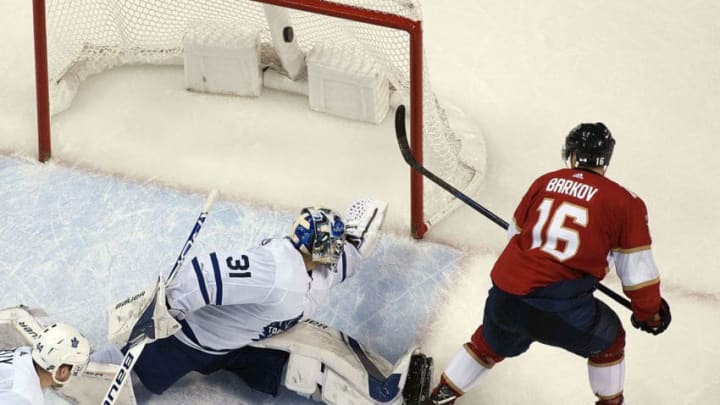The Florida Panthers have relied on Aleksander Barkov heavily over the past few seasons. If that trend continues, how long will the Cats’ captain be able to keep up his pace of play until he burns out?
In an 82-game regular season, fatigue is bound to set in. Some players tend to deal with the workload better than others, but, at a certain point, even the league’s best get worn out.
Aleksander Barkov averaged the most ice time in the Eastern Conference among forwards in each of the past two seasons. (22:04 mins/GP in 2017-18 and 22:21 mins/GP this past year)
With the amount of hype surrounding the club after an exciting offseason, a playoff berth should finally be in the team’s headlights. Can they really expect their captain to maintain his elite performance while playing extraneous minutes every night if they make a deep playoff push? It just doesn’t seem logical.
When you take a look at the St. Louis Blues, their top forward Ryan O’Reilly averaged nearly two minutes of ice time per game less than Barkov. That may seem like a minor difference, but again, the season is long and those minutes add up quickly.
O’Reilly went on to be instrumental in the Blues Stanley Cup victory.
He played more minutes on average than any other forward in both the 2015-16 season and, the 2016-17 season while he was a member of the Buffalo Sabres.
Having played less time last season, he looked far more energized throughout the year, especially in the postseason. On top of winning the Cup, he also earned himself the Conn Smythe Trophy as the playoffs’ MVP.
Do I expect Barkov to perform better if he plays less every night? No. I don’t think you can ask much more of the Cat’s captain after his record-breaking season. However, I do believe that had the Panthers been playing hockey in late April, he would have likely burned out.
The main question that determines whether or not the organization is in a position to offer Barkov more rest is: who can step up and take on that extra playing time?
It looks as though Florida will kick-off next year with the same crop of centermen. We know that Vincent Trocheck can produce, but after him, who could the team lean on to put up that extra offense?
As it stands, Henrik Borgstrom will likely assume the role of third-line centerman and will possibly be a key part of the Cats’ secondary powerplay unit. I’m sure Joel Quenneville will look for him to take the next step in his development because, well, he will need him to play a more significant role.
Borgstrom started last year as a bit of an unknown with tons of offensive upside. He didn’t necessarily have a bad rookie campaign, but he certainly didn’t have a phenomenal year. Scoring eight goals and 18 points in 50 games, he will need to improve his numbers for the coming season.
If he stays healthy and plays a full 82 games, I wouldn’t be surprised if he scores 20+ goals and around 35-40 points. That kind of production would take a massive load off of Barkov’s shoulders.
As talented as Barkov is, the Panther’s coaching staff should try to limit his playing time as much as possible. If that means bringing his ice time down to around 20 minutes a game, so be it. That would still give the young Finn ample opportunity to succeed. Every team needs its top-line centerman to be steady in every outing, particularly in the playoffs.
It doesn’t seem wise to continue pushing Barkov to the brink of exhaustion if they are looking to have any playoff success.
With the Panthers poised to make it back to the postseason dance for just the second time in over 15 years, keeping Aleksander Barkov fresh should be one of their top priorities. If the team continues to push him the brink of depletion on a nightly basis, he will inevitably slow down.
